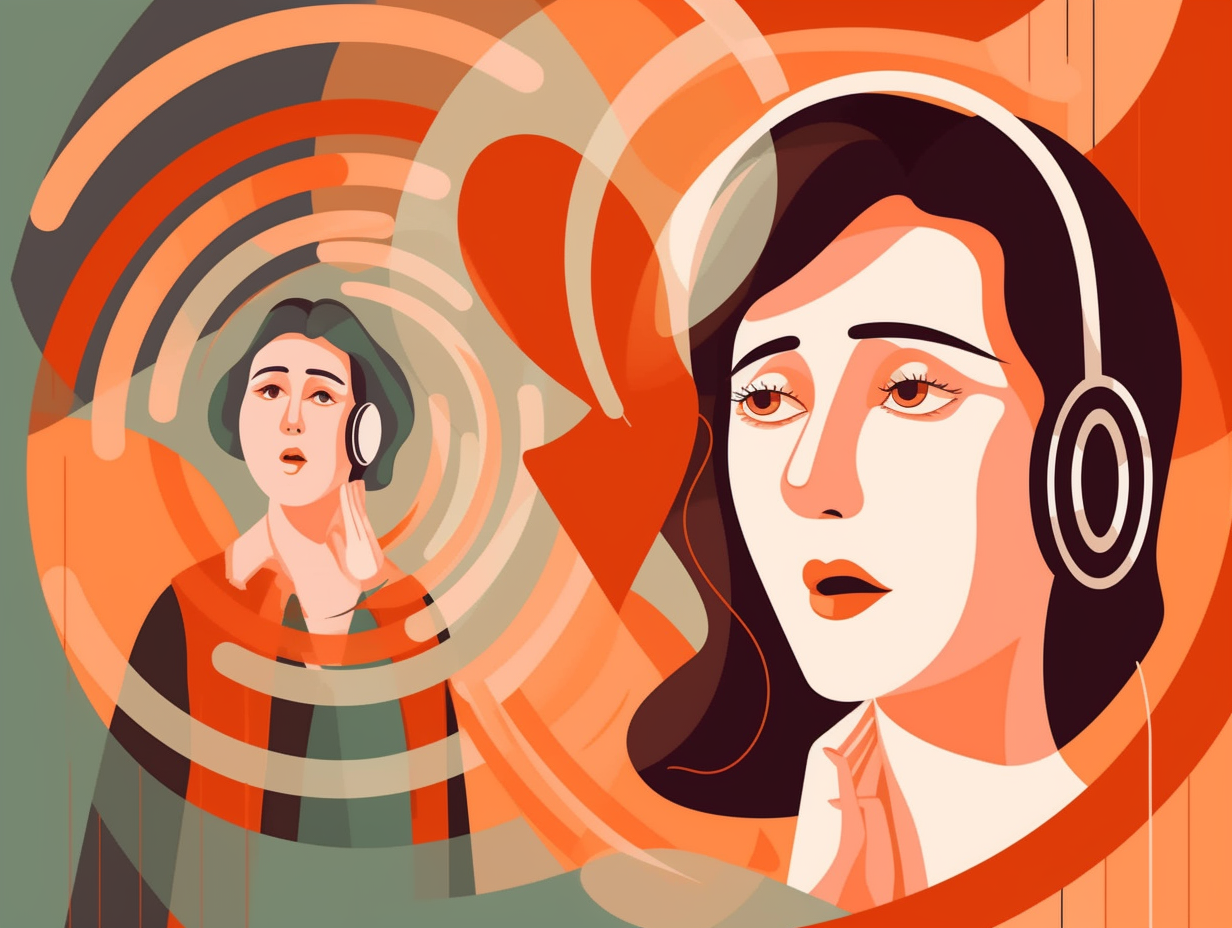Discover the Intriguing World of Mental Health: 12 Amazing Facts About Clinical Psychology You'll Love to Learn

1. Freud's Self-Talk Revolution
Before Freud's time, talking to yourself was simply an unpopular quirk; but then along came Sigmund, who turned it into a respected method for exploring the hidden depths of the human psyche: Sigmund Freud is renowned for his theory of the unconscious mind, where he claimed that a hidden treasure trove of thoughts, memories, and emotions existed beyond conscious awareness, forever influencing the way clinical psychology is practiced today.
Source => verywellmind.com
2. Psychologist Wardrobe Choices
Psychologists: more than just sofa whisperers! Contrary to popular mental images of reclining patients and bearded Freudian lookalikes, clinical psychologists don a variety of hats in their professional wardrobe: From diving into the complex world of research and hospital consultations to analyzing the fascinating intricacies of human behavior, these multifaceted mental maestros do a lot more than dole out therapy sessions.
Source => myfitbrain.in

Did you know that there's a lesser-known cousin to seasonal affective disorder that can strike in the summertime? Summer depression can cause anxiety, agitation, and even episodes of violent behavior. 🌞😟
=> Fun Facts about Mental-Health
3. Jung's Astrological Adventures
Twinkle, twinkle, little star, how I wonder what your sign is: Carl Jung, renowned for his analytical psychology, was also a devoted astrologer, using horoscopes to better understand his patients' individuation journeys, as well as unlocking the mysteries of alchemy and the concept of synchronicity.
Source => onlinelibrary.wiley.com
4. Chess Therapy Checkmates Issues
In a world of rooks and knights, pawns and prelates, the ancient game of chess proves its versatility yet again: Chess therapy is an unconventional psychotherapeutic technique that utilizes chess games between therapist and patient to address and reveal psychological issues, while simultaneously promoting critical thinking skills in children and fostering emotional wholeness in Gestalt therapy.
Source => en.wikipedia.org

5. Pharaoh Psammetichus' Secret Experiment
Was King Tut a therapist in disguise? Move over Freud, because it looks like ancient Egyptians were dabbling in psychology way before the couch-and-ink-blot era: Back in the 7th century BCE, Pharaoh Psammetichus I carried out a primitive psychology experiment to uncover the original language of humanity, involving raising two children in isolation without language instruction - their first word, "becos", turned out to be the Phrygian word for bread!
Source => cugmhp.org
6. Unleashing Pavlov's Drooling Dogs
Who let the dogs drool? Pavlov, of course! This famous scientist's canine experiments are barking up some incredible therapeutic trees: From treating phobias and addictions to influencing the immune system, clinical psychologists are unleashing the power of Pavlovian principles to tackle a whole range of psychological disorders.
Source => ncbi.nlm.nih.gov
7. The Slippery Definition of Normal
Trying to define normal in psychology is like trying to catch a greased pig at a country fair: slippery, messy, and oh-so-elusive! But here's a spoiler: Clinical psychology views normality as conformity to societal standards and appropriate behavior in given situations, while abnormality refers to any maladaptation or impairment in functioning. Fret not though, as being considered "abnormal" doesn't always equate to having a mental illness or pathology.
Source => differencebetween.net
8. Freud's Famed Couch Legacy
Say "couch potato" and you probably imagine someone binge-watching TV; but in the world of psychology, it's all about Freud's iconic psychoanalytic couch: gifted to him by a patient in the 1890s, Freud's famous couch, adorned with a beautiful Qashqa'i carpet, offered patients a comfy spot to recline during analysis. It now resides in the Freud Museum London, a testament to the heritage of clinical psychology.
Source => freud.org.uk
9. Psychological Courtroom Detectives
While Sherlock Holmes and Dr. Watson are off solving other mysteries, clinical psychologists don their detective hats and dive into the twisted world of courtroom intrigue, offering assistance to those who require deductions of the mental kind: They specialize in forensic psychology, assessing the mental states of defendants, witnesses, and victims, contributing to the determination of trial competency, and karmic justice for all.
Source => psychotherapy.psychiatryonline.org

10. Terrifying Journey to Licensure
You know what's more terrifying than the deep recesses of the human psyche? The journey to become a guide through those twisted mind tunnels: In New York, budding mental health counselors must survive 3,000 hours of supervised counseling, with at least half spent in direct combat with clients – not to mention conquering the ferocious National Clinical Mental Health Counselor Examination. Only then can they be granted the sacred power of licensure to steer others through mental mazes!
Source => allpsychologyschools.com
11. Wilhelm Wundt: Sherlock of Psychology
You might say Wilhelm Wundt was the Sherlock Holmes of psychology, sleuthing away to uncover the hidden mysteries of the mind – only his magnifying glass of choice was objective measurement and control: Wundt's methods, like those of the famous detective, were groundbreaking for their time, leading to the development of experimental psychology and the study of mental processes such as perception and attention, even though he wasn't the first one to establish a laboratory for studying human behavior. ElementRef
Source => simplypsychology.org
12. Mind Workout with CBT
Who knew therapy could be such a grand workout for the brain? You may be on the couch, but your mind's doing heavy lifting! Cognitive Behavioral Therapy, or CBT as the cool kids call it, flexes its muscles: CBT has been proven to be as effective as, or more effective than, other forms of psychological therapy or psychiatric medications in treating a range of problems including depression, anxiety disorders, alcohol and drug use problems, marital strife, eating disorders, and severe mental illness. And the best part? You become your own therapist, building those mental biceps with in-session exercises and take-home "homework" to help you change your thinking, tackle troublesome emotions, and reform your behavior.
Source => apa.org
Related Fun Facts




















